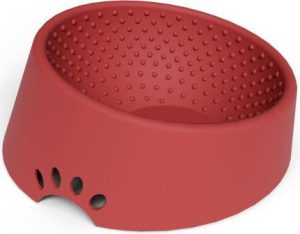In this article, we will explore whether dogs can safely consume Brussels sprouts and discuss any dietary restrictions they may have. We will also identify other safe vegetable options for dogs to ensure their nutritional needs are met.
Key Takeaways:
- Brussels sprouts can be a safe vegetable for dogs to eat.
- It is important to be aware of your dog’s dietary restrictions before introducing Brussels sprouts into their diet.
- Gradual introduction of Brussels sprouts is recommended to help your dog adjust to this new food item.
- Consult with your veterinarian for personalized advice on your dog’s nutritional needs.
- There are other dog-friendly vegetables that can provide similar nutritional benefits and offer dietary variety.
Understanding Canine Nutrition
Before we dive into the fascinating topic of Brussels sprouts for dogs, it’s crucial to have a solid grasp of canine nutrition. Proper nutrition plays a vital role in ensuring the overall health and vitality of our furry friends. Just like with humans, a balanced diet is essential for dogs.
Canine bodies have specific nutritional requirements that must be met to support their growth, development, and overall well-being. Providing our dogs with a complete and balanced diet helps to ensure they receive all the essential nutrients they need.
An optimal canine diet consists of proteins, carbohydrates, fats, vitamins, minerals, and water. Protein is particularly important for dogs as it supports muscle development, provides energy, and aids in maintaining healthy skin and coat.
Fats are another essential component of a dog’s diet, providing them with energy and aiding in nutrient absorption. Carbohydrates, such as grains and vegetables, provide energy and fiber, contributing to a healthy digestive system.
Vitamins and minerals are necessary for various biological functions within a dog’s body. They help maintain a strong immune system, support bone health, and facilitate numerous essential metabolic processes.
Water, often overlooked, is also critical for a dog’s overall health. Proper hydration is crucial to maintain normal bodily functions and prevent dehydration.
“A balanced and nutritious diet is key to keeping our dogs healthy and happy.”
Understanding the basics of canine nutrition empowers us to make informed decisions about our dog’s diet. By providing them with the appropriate nutrients in the right quantities, we can help ensure their optimal health and longevity.
The Five Essential Nutrients for Dogs:
- Proteins: Essential for growth, development, and overall body function.
- Fats: Provide energy, support organ function, and aid in nutrient absorption.
- Carbohydrates: Supply energy and fiber for a healthy digestive system.
- Vitamins: Essential for various metabolic functions and maintaining a strong immune system.
- Minerals: Play a vital role in bone health, enzymatic reactions, and overall well-being.
As responsible pet owners, it’s our duty to ensure that our furry companions receive a well-balanced diet that meets their specific nutritional needs. Now that we have a solid understanding of canine nutrition, we can explore how Brussels sprouts fit into their diet and what benefits they offer.
Brussels Sprouts and Dogs: Are They Safe?
When it comes to incorporating Brussels sprouts into your dog’s diet, it’s important to consider their safety. While Brussels sprouts are generally safe for dogs, there are some potential risks and negative effects to be aware of.
Feeding Brussels sprouts to your dog should be done in moderation and with proper preparation.
Potential Risks and Negative Effects
Although Brussels sprouts are packed with beneficial nutrients, they can also have some adverse effects on dogs if not given in appropriate quantities. The key is to find the right balance.
- Gastrointestinal Issues: Brussels sprouts are part of the cruciferous vegetable family, which can sometimes cause gas and bloating in dogs. It’s essential to introduce this vegetable gradually to avoid any digestive discomfort.
- Thyroid Imbalance: Like other cruciferous vegetables, Brussels sprouts contain a compound called goitrogens that can interfere with thyroid function. Although this is generally not a concern unless your dog consumes large quantities regularly, it’s best to consult with your veterinarian if you have any concerns.
Moderation and proper preparation are key when it comes to feeding your dog Brussels sprouts.
Appropriate Portion Sizes
When feeding Brussels sprouts to your dog, it’s important to remember that they should only make up a small portion of their overall diet. The focus should be on variety and balance.
The appropriate portion size depends on your dog’s size, age, and individual dietary needs. A general guideline is to give your dog Brussels sprouts in small, cooked portions as a treat or as a supplement to their regular meals.
| Size of Dog | Brussels Sprouts Portion |
|---|---|
| Small (up to 20 lbs) | 1-2 Brussels sprouts per day |
| Medium (20-50 lbs) | 2-3 Brussels sprouts per day |
| Large (50+ lbs) | 3-4 Brussels sprouts per day |
Remember to always consult with your veterinarian before making any significant changes to your dog’s diet or introducing new foods.
In the next section, we will explore the numerous benefits of incorporating Brussels sprouts into your dog’s diet, providing them with a wide range of essential nutrients for their overall health and well-being.
The Benefits of Brussels Sprouts for Dogs
When it comes to incorporating healthy snacks into a dog’s diet, Brussels sprouts are a fantastic option. Not only are they packed with essential nutrients, but they also offer several benefits that can contribute to your furry friend’s overall health and well-being.
Rich in Vitamins and Minerals
Brussels sprouts are loaded with vitamins and minerals that are beneficial for dogs. They are an excellent source of vitamin K, which plays a crucial role in blood clotting and bone health. Additionally, they contain vitamins C and A, which help support a strong immune system and promote healthy skin and coat.
Furthermore, Brussels sprouts are a good source of minerals like manganese, which supports brain function and nutrient metabolism, as well as folate, which is essential for cell growth and development.
High in Fiber
The high fiber content in Brussels sprouts can aid in digestion and promote a healthy gastrointestinal system in dogs. Fiber helps regulate bowel movements and can prevent issues like constipation. It also promotes a feeling of fullness, which can be beneficial for dogs on a weight management plan.
Antioxidant Properties
Brussels sprouts contain antioxidants that can help protect your dog’s cells from damage caused by harmful free radicals. These antioxidants, including vitamin C and vitamin A, have anti-inflammatory properties and can potentially reduce the risk of chronic diseases in dogs.
Low in Calories
For dog owners concerned about their pet’s weight, Brussels sprouts are a calorie-conscious snack option. They are low in calories and can be a healthier alternative to high-calorie treats. However, it is important to monitor portion sizes to prevent overfeeding.
How to Serve Brussels Sprouts to Dogs
While Brussels sprouts offer numerous health benefits, it’s important to prepare and serve them properly to ensure your dog’s safety and enjoyment. It is recommended to cook or steam Brussels sprouts before feeding them to your dog to make them easier to digest. Avoid adding any seasonings, oils, or butter, as they can be harmful to dogs.
If you’re introducing Brussels sprouts to your dog’s diet for the first time, start with small portions and monitor their reaction. Some dogs may experience gas or an upset stomach when trying new foods, so it’s best to gradually increase the amount over time.
Remember, while Brussels sprouts are a healthy choice for dogs, they should be part of a balanced diet and not the sole focus. Incorporate a variety of dog-friendly veggies to ensure your furry friend receives a wide range of nutrients.
Preparing Brussels Sprouts for Dogs
In this section, we will discuss different methods of preparing Brussels sprouts for dogs. Dogs can benefit from the nutritional value of Brussels sprouts when they are prepared in a safe and appropriate manner. It is important to ensure that the vegetable remains easily digestible and does not pose any risks to your furry friend’s health.
When it comes to feeding Brussels sprouts to dogs, there are a few options to consider:
1. Cooking Brussels Sprouts for Dogs
Cooking Brussels sprouts helps soften their texture, making them easier for dogs to chew and digest. To cook Brussels sprouts for your dog, you can follow these simple steps:
- Wash the Brussels sprouts thoroughly to remove any dirt or debris.
- Trim off the tough stems and any discolored leaves.
- Steam or boil the Brussels sprouts until they are tender. Avoid adding any seasonings or additives.
- Let the cooked Brussels sprouts cool down before serving them to your dog.
2. Steaming Brussels Sprouts for Dogs
Steaming Brussels sprouts is another method that helps retain their nutrients while making them more palatable for dogs. Follow these steps to steam Brussels sprouts for your canine companion:
- Wash the Brussels sprouts thoroughly and remove the tough stems and discolored leaves.
- Place the Brussels sprouts in a steamer basket over boiling water.
- Cover the pot and steam the Brussels sprouts until they are tender.
- Allow the steamed Brussels sprouts to cool before serving them to your dog.
3. Serving Raw Brussels Sprouts to Dogs
While some dogs enjoy munching on raw vegetables, including Brussels sprouts, it is essential to take a few precautions. Raw Brussels sprouts can be difficult for dogs to digest, so it is recommended to follow these guidelines:
- Wash the Brussels sprouts thoroughly and remove the tough stems and discolored leaves.
- Chop the Brussels sprouts into small, bite-sized pieces to prevent choking hazards.
- Introduce raw Brussels sprouts in small quantities to assess your dog’s tolerance and digestion.
- Observe your dog’s reaction and monitor for any signs of gastrointestinal upset after feeding raw Brussels sprouts.
Remember, each dog is unique, and their digestive systems may respond differently to Brussels sprouts. It is always a good idea to consult with your veterinarian before introducing any new food into your dog’s diet.
Introducing Brussels Sprouts to Your Dog’s Diet
Transitioning to a new food item requires careful consideration, especially when it comes to dogs with specific dietary restrictions. In this section, we will provide tips on how to introduce Brussels sprouts to your dog’s diet gradually, ensuring they adjust well and experience maximum nutritional benefits.
- Start with small portions: Begin by offering your dog a small amount of cooked Brussels sprouts as a treat or topping for their regular meal. Monitor their reaction and observe any changes in digestion or behavior.
- Follow a slow introduction: Over the course of a week, gradually increase the amount of Brussels sprouts in their meals. This slow introduction allows their digestive system to adapt to the new food item and reduces the risk of gastrointestinal upset.
- Watch for any adverse reactions: Keep an eye out for any signs of food allergies or sensitivities. These may include vomiting, diarrhea, excessive gas, or changes in appetite. If you notice any negative reactions, consult your veterinarian.
If your dog has specific dietary restrictions or a history of digestive issues, it is crucial to consult with your veterinarian before introducing Brussels sprouts to their diet. Certain conditions or medications may require additional considerations or restrictions.
Remember, while Brussels sprouts are generally safe for dogs, they should be served in moderation as part of a balanced diet. They should not replace a complete commercially balanced dog food formulated to meet all their nutritional needs. Always prioritize your dog’s well-being and consult a professional if you have any concerns.
| Safe Vegetables for Dogs | Nutritional Benefits |
|---|---|
| Carrots | Packed with beta-carotene, vitamins, and fiber |
| Pumpkin | Rich in fiber and promotes digestive health |
| Green Beans | Low in calories and a good source of vitamins and minerals |
Other Dog-Friendly Vegetables
While Brussels sprouts can be a healthy addition to your dog’s diet, there are several other dog-friendly veggies that can provide similar nutritional benefits and add variety to their meals. These vegetables are not only safe for canine consumption but also offer a range of vitamins and minerals to support your furry friend’s overall health.
Here are some top choices of dog-friendly vegetables:
- Carrots: Carrots are rich in beta-carotene, which promotes good vision and a healthy immune system. They also serve as a crunchy and satisfying treat for your dog.
- Sweet Potatoes: Sweet potatoes are packed with fiber, vitamins, and antioxidants. They make a delicious addition to your dog’s diet and can be served boiled, mashed, or baked.
- Green Beans: Green beans are low in calories and high in fiber, making them a great choice for dogs that need to lose weight. They can be served steamed or raw as a tasty and nutritious snack.
- Pumpkin: Pumpkin is an excellent source of fiber and can help ease digestion issues in dogs. It can be served cooked or canned (without additives) and is often recommended for dogs with sensitive stomachs.
- Broccoli: Broccoli is packed with essential vitamins and minerals, including vitamin C and calcium. However, it should be given in moderation as excessive consumption can cause stomach upset.
Remember, when introducing new vegetables to your dog’s diet, it’s important to monitor their response and introduce them gradually. Additionally, always consult with your veterinarian to ensure that your dog’s individual dietary needs are met.
Conclusion
In conclusion, Brussels sprouts can be a nutritious addition to your dog’s diet. These tiny green veggies pack a punch when it comes to providing valuable nutrients and promoting overall health for your furry friend. However, it’s crucial to consider your dog’s dietary restrictions and introduce Brussels sprouts gradually to avoid any potential digestive issues.
Consulting with your veterinarian is always recommended when making changes to your dog’s diet. They can provide personalized advice and address any concerns or specific needs your dog may have. Your veterinarian will guide you in determining the appropriate portion sizes and ensure that your dog’s nutritional needs are met.
Remember, a balanced diet is essential for your dog’s well-being. While Brussels sprouts can offer numerous health benefits, they should not be the sole source of nutrition for your canine companion. Consider incorporating a variety of dog-friendly vegetables to provide a range of nutrients and flavors. This will not only keep mealtime exciting but also help maintain optimal health for your beloved four-legged friend.
FAQ
Can a dog eat Brussels sprouts?
Yes, dogs can eat Brussels sprouts. However, there are a few things to consider before incorporating this vegetable into their diet. It is important to prepare Brussels sprouts properly and introduce them gradually to avoid any digestive issues.
What are the dietary restrictions for dogs?
Dogs have certain dietary restrictions, and it’s important to be aware of them. Although Brussels sprouts are generally safe for dogs, they should not make up the majority of their diet. Dogs need a balanced diet that includes a variety of other vegetables, protein, and grains.
Are Brussels sprouts safe for dogs?
Yes, Brussels sprouts are safe for dogs to eat. However, they should be given in moderation as part of a balanced diet. Dogs can benefit from the nutrients found in Brussels sprouts, but excessive consumption may lead to gas or an upset stomach.
What are some other safe vegetables for dogs?
In addition to Brussels sprouts, there are several other vegetables that are safe for dogs to consume. Some dog-friendly veggies include carrots, green beans, sweet potatoes, and peas. These vegetables can be cooked or served raw, but it’s important to avoid seasoning or adding any harmful ingredients.
How can I prepare Brussels sprouts for my dog?
When preparing Brussels sprouts for your dog, make sure to remove the stem and chop them into small, bite-sized pieces. You can then steam or lightly cook the Brussels sprouts to make them easier to digest. Avoid using any seasoning or oils that may be harmful to dogs.
How should I introduce Brussels sprouts to my dog’s diet?
It is best to introduce Brussels sprouts gradually to your dog’s diet. Start by adding a small amount of cooked Brussels sprouts to their regular food or using them as a treat during training sessions. Monitor your dog for any adverse reactions, and consult with your veterinarian if you have any concerns.
Can Brussels sprouts be a healthy snack for dogs?
Yes, Brussels sprouts can be a healthy snack for dogs when given in moderation. They are low in calories and high in fiber, vitamins, and minerals. However, it’s essential to consider your dog’s specific dietary needs and consult with your veterinarian before making any significant changes to their diet.
What is the nutritional value of Brussels sprouts for dogs?
Brussels sprouts are packed with nutrients that can benefit dogs. They are an excellent source of vitamins C and K, fiber, and antioxidants. These nutrients can support your dog’s immune system, improve digestion, and promote overall well-being.










